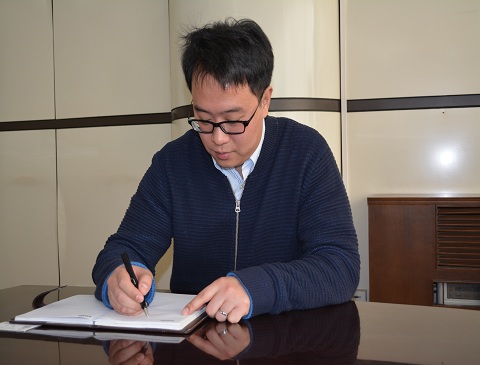Concentrating photovoltaic (CPV) technology, used for the production of solar electricity, faces a number of challenges, not least because of potential limitations in deployable locations. Most effective in areas with direct sunlight, Strategy Analytics (Boston) believes that CPV technology has the potential for strong growth.

Asif Anwar: CPV is potentially
offering 100% improvement in efficiencies
The Strategy Analytics report "CPV Technology Market Status Update and Future Prospects" which is to be presented at Solartech World 2011, March 16th - 17th, in Gwangju, Korea, predicts CPV installed capacity will grow at a compound annual growth rate (CAGR) of 174% through 2015.
CPV remains behind crystalline silicon, CdTe and CIGS, offers 100% improvement in efficiencies compared to other solar technologies
Solar energy installations have continued to grow strongly, with Strategy Analytics estimating that new global installations reached 16.3GW in 2010. Approaches utilizing crystalline silicon continue to be the primary technology, followed by strong momentum behind a host of thin film technologies including cadmium telluride (CdTe) and copper indium gallium selenide (CIGS). Concentrated PV (CPV) technology remains behind these other technologies.
"While potentially offering 100% improvement in efficiencies compared to other solar technologies, CPV is only really effective where there is high direct normal solar irradiation," noted Asif Anwar at Strategy Analytics. "While this has limited early deployment, the benefits of CPV will translate into rapid growth in these locations."
"In 2010, some significant projects came into play in the southwestern United States, the Middle-East, Africa and Australia," noted Eric Higham Director, GaAs service at Strategy Analytics. "CPV installations will grow at a CAGR of 174% to account for just over 4% of global solar installations in 2015."
- 第九届中国(无锡)国际新能源大会
-
 本届新能源大会以“新城镇、新能源、新生活”为主题,举办2017全球新能源产业峰会及“光伏+”跨界、绿色建筑、分布式市场营销等10场专业论坛,国家能源局新能源和可再生能源司...
本届新能源大会以“新城镇、新能源、新生活”为主题,举办2017全球新能源产业峰会及“光伏+”跨界、绿色建筑、分布式市场营销等10场专业论坛,国家能源局新能源和可再生能源司...














